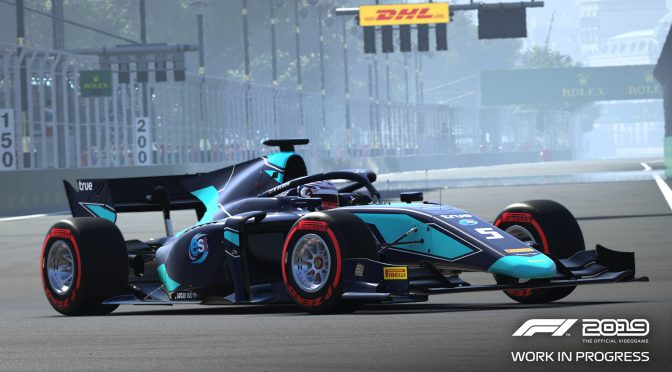F1 2019 releases next week and below you can find some 4K screenshots from the PC version on Ultra settings, as well as our initial 4K performance impressions of this brand new F1 racing game.
In order to capture the following 4K screenshots, we used an Intel i7 4930K (overclocked at 4.2Ghz) with 16GB of DDR3 RAM at 2133Mhz, NVIDIA’s RTX 2080Ti, Windows 10 64-bit and the GeForce driver 430.86.
F1 2019 supports DirectX 12 and we are happy to report that the NVIDIA GeForce RTX2080Ti is able to provide constant 60fps in 4K and on Ultra settings, even during the worst case scenarios (Heavy Rain during night stages).
F1 2019 is undoubtedly the most beautiful F1 game to date. Codemasters has improved the game’s lighting system, has used high-quality textures for vehicles and most surfaces, has used an impressive object motion blur effect, and has provided a great looking racing game. All of the reflections are amazing, the water spray during rainy races are awesome, and there are some really cool raindrops.
Take for example the following screenshot. Here you can see the raindrops at the bottom of the screen turning red-ish due to the colour of the vehicle. Obviously this isn’t any real-time ray tracing effect, however it’s a cool effect – and a nice detail – that provides extra eye-candy to an already beautiful game.
Our PC Performance Analysis will go live later this week (in which we’ll test more GPUs) so stay tuned for more. Until then, enjoy the following 4K screenshots as well as a video showing a benchmark run in Singapore in Heavy Rain.
Enjoy!

John is the founder and Editor in Chief at DSOGaming. He is a PC gaming fan and highly supports the modding and indie communities. Before creating DSOGaming, John worked on numerous gaming websites. While he is a die-hard PC gamer, his gaming roots can be found on consoles. John loved – and still does – the 16-bit consoles, and considers SNES to be one of the best consoles. Still, the PC platform won him over consoles. That was mainly due to 3DFX and its iconic dedicated 3D accelerator graphics card, Voodoo 2. John has also written a higher degree thesis on the “The Evolution of PC graphics cards.”
Contact: Email





















